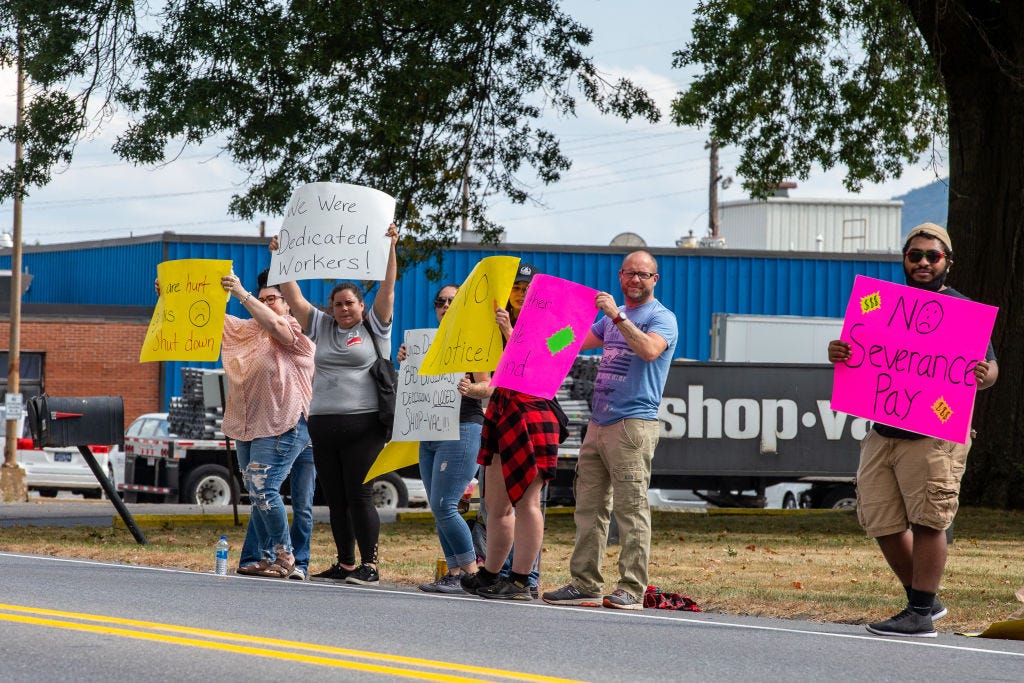Laid off? Yowei Shaw is here to help
The podcast host on losing her job, what work means, and her new path helping people manage the stresses of life in this moment
We’ve been saying for a while now (more so since we talked to FTC Chair Lina Khan) that the economy is where people live democracy. It’s also where we live its discontents, such as when a manager — often citing the mysterious movements of market forces — lets us know we’re no longer needed. And rugged individualists that we are here in America, we’re generally left to deal with the aftermath on our own.
When journalist Yowei Shaw, the former host of NPR’s Invisibilia podcast, got laid off from her job, she decided to do something about it. She’s started a new podcast — Proxy — that’s about layoffs, in a way, but is really about connecting people so they can negotiate the twists and turns of emotional life during late capitalism, and hopefully even laugh about it.
We talked to Shaw about what it’s like to go through a layoff and how it affected her on a deeper level than she’d expected, how she recovered and figured out how to turn the experience into a way to help, and why she wrote a song about it, and what work means to people today, among many other things.
If you’ve ever worked, or been laid off, or maybe if you’ve been on the other side of the discussion you’ll want to read on.
A request for those who haven’t yet joined us: The interviews and essays that we share here take research and editing and much more. We work hard, and we are eager to bring on more writers, more voices. But we need your help to keep this going. Join us today to support the kind of independent media you want to exist.
You and I work in journalism, so we’re somewhat used to being laid off at regular intervals or seeing lots of people we know laid off. But sadly more people these days have learned all about layoffs — despite improving employment numbers, they’re a part of everyone’s experience now, correct?
I have a Google alert for “layoffs” and it’s popping off every few days. And in my little world, it does feel like people are getting laid off left and right. Like, just the other day, it almost happened to my friend.
But when I asked experts, they said the actual number of layoffs this year isn’t unusually high. If you’re a nerd about this stuff, the Job Openings and Labor Turnover survey is a good place to check the pulse on layoffs. You’ll see that the layoff rate has largely been on a downward trajectory since the Great Recession. There was fewer than one unemployed person per job opening in the U.S. We’re probably seeing more layoffs make headlines because they’re happening in high-visibility sectors like tech and media.
So yeah, we’re not in a layoff crisis in hard numbers. But that doesn’t mean there isn’t a crisis of sorts. I think it’s a crisis that we don’t blink an eye at layoffs today. It’s considered standard business practice.
But like, come on, you guys! Companies used to avoid layoffs. They used to be a stain on a company’s reputation.
And the fact that we have very little regulation around layoffs in the U.S. means that if you do get laid off, it’s gonna be much more of a personal crisis than in other countries, where companies are required to give advanced notice and severance. Not to mention the emotional and mental health toll of layoffs — and the research that finds that Americans are uniquely good at blaming themselves for getting laid off.
Is part of that because people invest too much emotionally in work? I remember being laid off by a company, and even if the rationale was financial, part of my last employee review there included the criticism that I “didn’t bring my whole self to work.” I’m thinking — you don’t want my whole self, and I don’t want to give it to you. Can you talk more about this?





